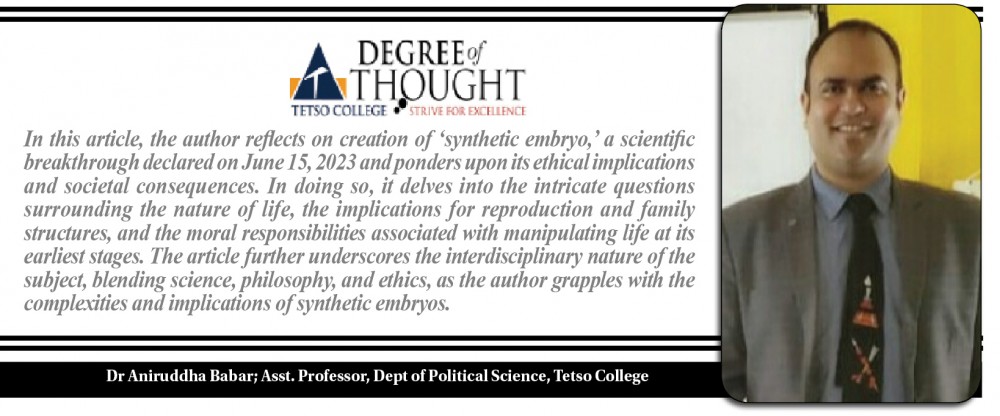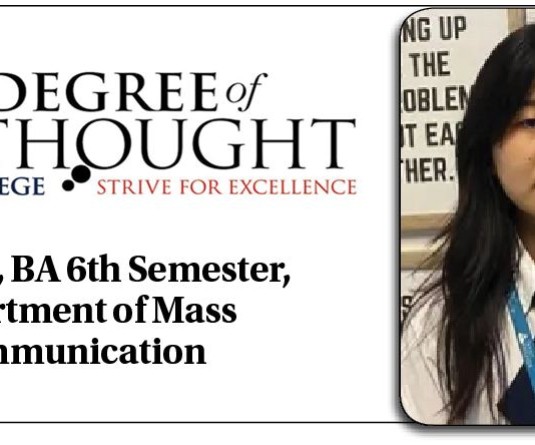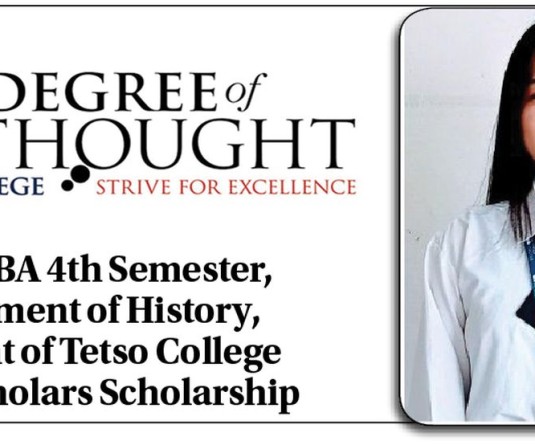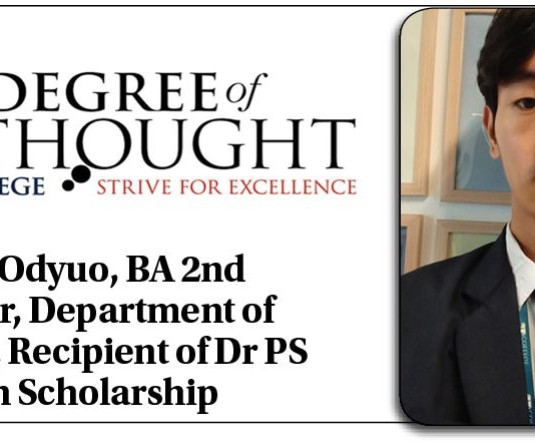
Dr Aniruddha Babar; Asst. Professor, Dept of Political Science, Tetso College
As I contemplate the Faustian Geist in the context of synthetic embryos and the question of human limits, a profound sense of awe and apprehension engulfs me. The concept of synthetic embryos represents the pinnacle of human scientific achievement, pushing the boundaries of what was once deemed impossible. However, it also raises profound ethical and philosophical questions that force us to confront the limits of our humanity and the potential consequences of our relentless pursuit of progress.
The Faustian Geist, rooted in the legendary character of Faust who sought unlimited knowledge and power, manifests itself in the creation and manipulation of synthetic embryos. Just as Faust made a pact with the devil to gain unrivaled knowledge, scientists today tread a fine line between groundbreaking discovery and the potential erosion of our moral and ethical foundations.
Synthetic embryos challenge the very essence of our understanding of life and personhood. They are created in laboratories through advanced genetic manipulation and bioengineering techniques, blurring the line between what is natural and what is artificially created. This leads us to question the limits of our ability to shape and control life, and raises the existential inquiry of what it truly means to be human.
The creation of synthetic embryos confronts us with the profound ethical dilemma of defining personhood. Traditionally, personhood has been associated with biological criteria, such as the ability to reproduce and exhibit self-awareness. However, synthetic embryos challenge these conventional definitions, as they are artificially created and may not possess the same biological origins as naturally conceived embryos.
As I ponder this ethical quandary, I am reminded of the philosophical concept of the "soul." The question arises: can a synthetic embryo possess a soul, that intangible essence that is believed to define our humanity? If we cannot definitively answer this question, how can we establish the moral and legal rights of synthetic embryos? These questions evoke a sense of unease within me, as they force us to grapple with the Faustian temptation to play God and the potential consequences of our actions.
The Faustian Geist of synthetic embryos also confronts us with the ethical considerations of the commodification and exploitation of human life. Throughout history, humanity has witnessed the exploitation and commodification of various aspects of life, from the exploitation of natural resources to the commodification of labor. The creation of synthetic embryos raises the specter of a future where human life itself becomes a commodity, bought and sold for financial gain.
This commodification of human life undermines the inherent dignity and uniqueness of each individual. It reduces us to mere objects of commerce, stripping away our intrinsic worth and reducing us to a means to an end. The Faustian impulse to exploit and profit from synthetic embryos threatens to erode our moral fabric, devaluing the sanctity of human life and blurring the boundaries between what is ethically permissible and what is morally reprehensible.
Moreover, the creation of synthetic embryos forces us to confront the limitations of our knowledge and the potential dangers of our pursuit of progress. The Faustian Geist drives us to unravel the mysteries of life and control the very building blocks of existence. However, in our relentless pursuit of knowledge and power, we may inadvertently unleash unforeseen consequences and risks that have the potential to reshape the course of humanity and human existence.
The creation of synthetic embryos has the potential to revolutionize reproductive technologies, offering hope to individuals and couples struggling with infertility or genetic disorders. However, it also raises concerns about unintended consequences and the potential for misuse. The Faustian temptation to forge ahead without fully understanding the long-term implications of our actions is a perilous path to tread.
As I reflect on the Faustian Geist and the question of human limits, I am reminded of the importance of ethical considerations, introspection, and humility in the face of our pursuit of progress. We must strive to strike a balance between scientific advancement, material insanity and the preservation of our moral and ethical values.
The Faustian impulse to push the boundaries of what is possible should be tempered by a deep respect for the sanctity of life and a recognition of the limitations of our knowledge. It is through this introspection and ethical deliberation that we can navigate the complex terrain of synthetic embryos and ensure that our actions align with our shared humanity and our collective responsibility towards the preservation of life and the well-being of future generations.
The Faustian Geist intertwined with the creation of synthetic embryos poses profound ethical and philosophical questions about the limits of our humanity and the consequences of our relentless pursuit of progress. It forces us to grapple with the complexities of defining personhood, the commodification of human life, and the potential dangers of our quest for knowledge and power.
As we navigate this uncharted territory, it is crucial that we approach the creation and manipulation of synthetic embryos with humility, wisdom, and a deep respect for the intrinsic value of life. Only by acknowledging and confronting the Faustian Geist within us can we hope to navigate the moral and ethical challenges posed by synthetic embryos and ensure that our pursuit of progress aligns with our shared values and the well-being of humanity as a whole.
The Degree of Thought Column is a weekly community column initiated by Tetso College in partnership with The Morung Express. The column explored contemporary social, cultural, political, and educational issues and challenges around us. However, the views expressed here do not reflect the opinion of the institution. Tetso College is a NAAC-accredited, UCG-recognized Commerce and Arts college. Currently, the Degree of Thought Column is managed by the department of Mass Communication, and the editorial team are Dr Jenny Lalmuanpuii, KC Gabriela and Rinsit Sareo. For feedback or comments, please email:
dot@tetsocollege.org.






